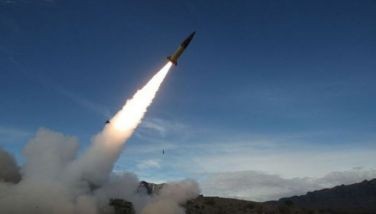Official: US, Germany to negotiate 'no spy' pact
BERLIN — Germany and the United States will begin negotiations this month on an agreement not to spy on one another in wake of the revelations by NSA leaker Edward Snowden about massive electronic surveillance by the National Security Agency, a senior German official said yesterday.
Chancellor Angela Merkel's chief of staff, Ronald Pofalla, told reporters such an agreement would offer a unique opportunity to set standards for the future work of Western intelligence agencies now that the Cold War is over. US Embassy spokesman Peter Claussen said he had no immediate comment about Pofalla's remarks, which were made following a meeting of a parliamentary committee overseeing intelligence services.
Pofalla gave no details about how the agreement, which he said would also cover economic intelligence, might limit NSA operations such as PRISM, which compels major Internet firms to hand over detailed contents of communications such as emails, video chats and more.
Public outrage over Snowden's allegations has been especially strong in Germany, where privacy is cherished after the country's painful history of mass surveillance of the citizenry in communist East Germany and Adolf Hitler's Nazi state. With national elections in six weeks, the government is under pressure to respond to public anger without endangering its relations with Washington, which shares intelligence gleaned by NSA.
US officials have defended the NSA programs as necessary to prevent terrorist attacks, including those in Europe.
But Germany's independent privacy watchdogs say the surveillance programs breach an EU-US pact meant to ensure cross-border data protection. German officials are seeking European support for a new global charter safeguarding personal privacy online,
Merkel raised the issue of alleged NSA spying with President Barack Obama when he visited Berlin in June. Her government this month also canceled a Cold War-era agreement that allowed the US and Britain the authority to request German authorities to conduct surveillance operations within the country to protect their troops stationed there.
But Merkel has also argued that governments had a duty to defend its citizens in an era of global terrorism and has scoffed at comparisons between US spying and the massive surveillance in communist East Germany where she grew up.
Following the parliamentary meeting, Pofalla also said that cooperation between NSA and Germany had averted an average of three to four attacks per week against German soldiers in Afghanistan.
In Washington, State Department spokesman Patrick Ventrell the United States cooperates "on a breadth of civilian, military, and security issues together with our partners throughout the world, and our relationship with Germany is no different."
"We look forward to continuing our dialogue and cooperation with our European allies and partners," Ventrell said.
- Latest
- Trending




























